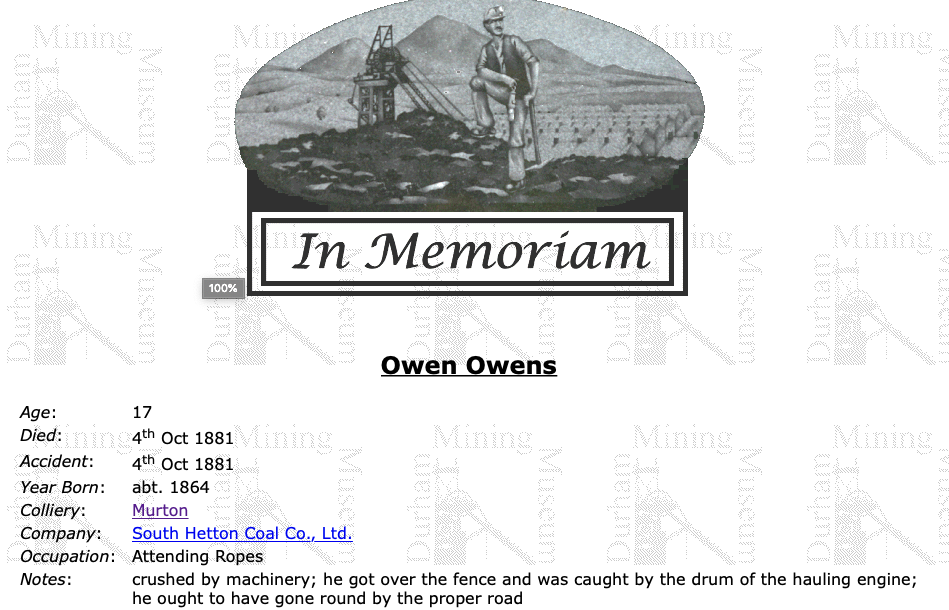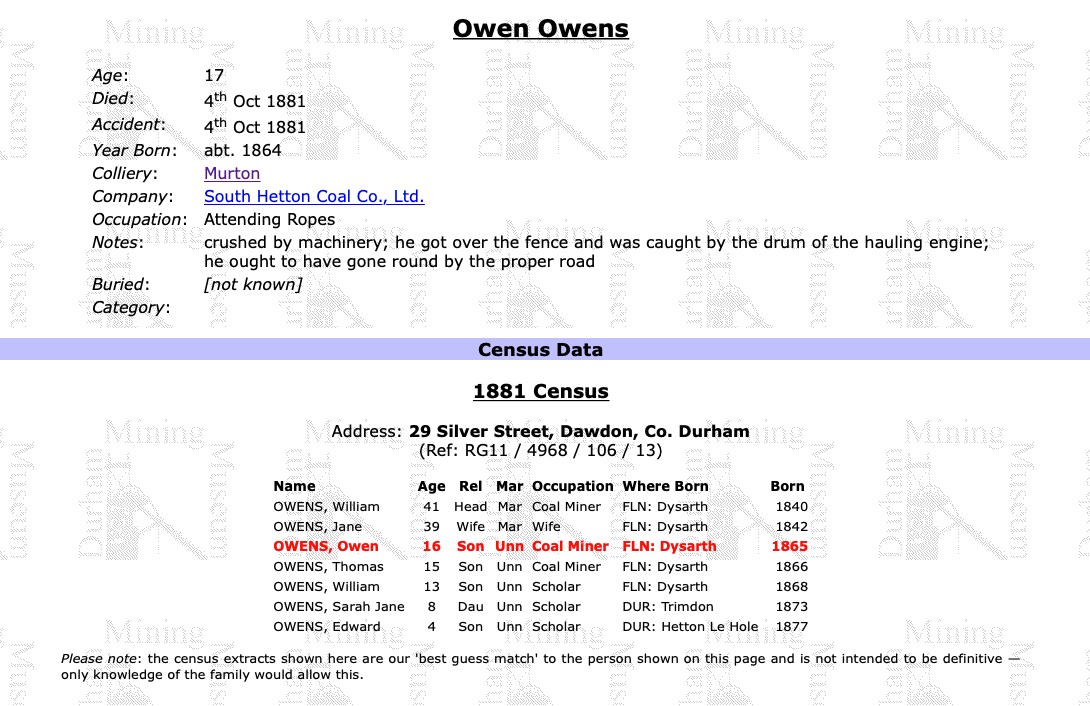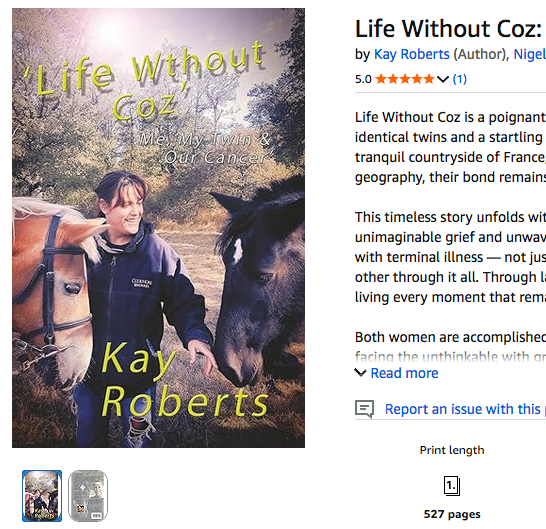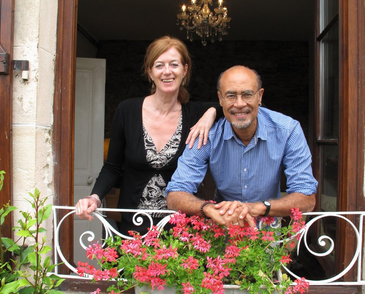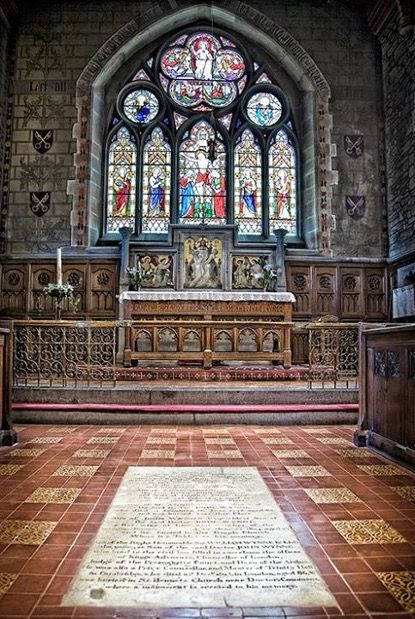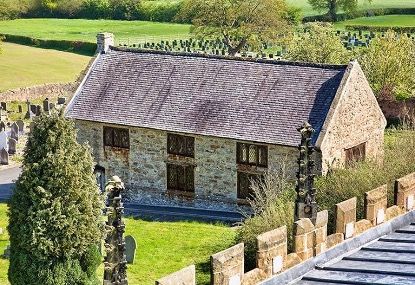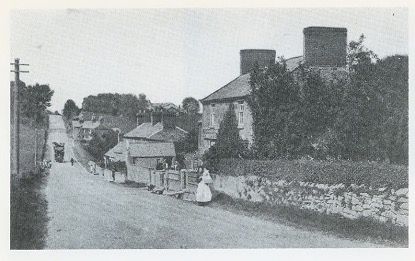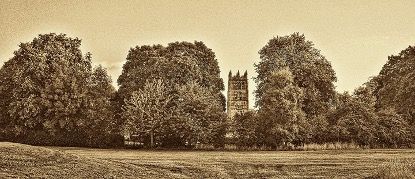A couple of weeks ago I wrote about Rock Cottage in Flint Mountain where my ancestors the Owens family lived. I recall my dad telling me he spent most of his early years being brought up by his grandparents (John and Sarah Jane Williams) in 'The Mountain' and recalled those times as the halcyon days of his life. I also wrote about this when I talked of the
Ellyllon of Pwll-Y-Wrach, which I mention in
Esmeralda's Talisman.
Nain and Taid, as he knew them, were from a hard working family of coal miners. Flintshire, in the nineteenth and early part of the twentieth century was a huge coal mining area employing thousands in filthy and dangerous conditions. Dad had particular fond memories of his 'Nain' who was born Sarah Jane Owens (my Great Grandmother) and in her latter days, when most people nowadays would be retired on a pension, she was employed as a cleaner at the village church and school. Hard working until her last breath when she died in 1950 aged 78.
When I started researching my family tree, over thirty years ago, my dad's sister gave me a copy of Sarah-Jane's birth certificate and I was surprised to see that, she was born in 1872, not in Flintshire as I thought, but in Easington, County Durham. Further research showed the Owens family had moved there from Dyserth, Flintshire in 1869 to work in the mines around County Durham. This would be a fateful decision which would cost the family dearly, something I have only just discovered in the past few weeks.
Having seen that Sarah-Jane Owens was born in County Durham, I wondered why the family hadn't stayed up in the North East permanently. The 1881 census revealed the family were living at 29 Silver Street in East Murton. Sarah-Jane is recorded as a scholar, but her father William (41), her brothers Owen (16) and Thomas (15) were recorded as Coal Miners. This prompted me to look at the history of the mines and miners in the area and to my shock I found out that seventeen year-old Owen, just a few short months after the census of 1881, had tragically lost his life at Murton Colliery, killed when the ropes of a hauling engine had dragged him into the machinery.
Sadly, from reading the records of the deaths at this colliery and others in the area, this was not uncommon and thousands more lost their lives digging coal out of the ground to keep Britin's Industrial Revolution going. Take a look at the Durham Mining Museum site and the record of those who lost their lives at
Murton Colliery alone. Owen Owens' name is now just a name on this list, but his name is not forgotten.
Worst of all, Owen's death didn't even make the newspapers as far as my research has shown and, as of today, I cannot even find a Coroner's report into his death. Certainly he would have received no compensation and his untimely demise seems to have been recorded as his own fault. This says much about the ethos at the time and how contemptible they treated their workers.
Following the tragedy, the family moved back to Flintshire and to Flint Mountain. It's a good job they did, as that's where Sarah-Jane met my Great-Grandfather John Williams, otherwise I certainly wouldn't be here to write this story today.
This was one story my dad never ever recounted to me. Did he know? He might have, as he spent his adult working life as a prominent member of the Shotton Steel Works union fighting for the rights of workers and ensuring their health and safety was secure in the dangerous environment they worked in.
#tradesunion #miners #murton #genealogy #ancestry #murtoncolliery #flintshire #history #flint #flintmountain #owensfamily

